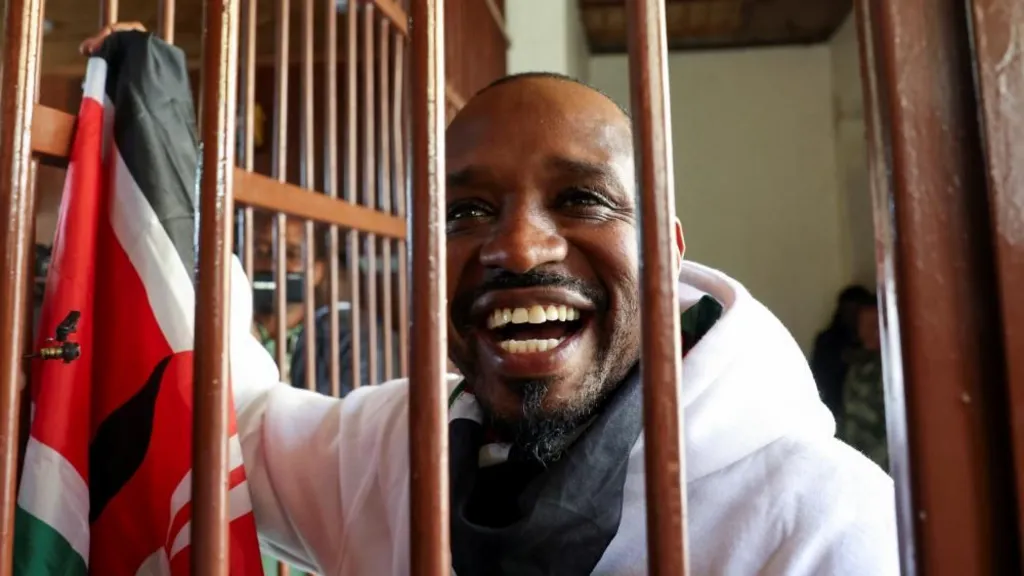PROMINENT Kenyan activist Boniface Mwangi has been charged with illegal possession of ammunition linked to protests last month in which at least 19 people were killed.
He denied the charge and has been released on bail.
Mr Mwangi was not charged with “facilitation of terrorist acts”, as the police had earlier said.
On Sunday, investigators said they had seized phones, a laptop, and notebooks from his Lukenya home on the outskirts of the capital, Nairobi, and hard drives, computers, tear gas canisters and a blank firearm round from his office in the city.
His arrest – and especially the suggestion that he would face terrorism charges sparked a wave of condemnation, with human rights groups denouncing it as aimed at suppressing opposition voices. The activist denied the accusations against him, saying in a post on X: “I am not a terrorist.”
The alleged offences are linked to anti-government protests on 25 June when, according to the state-funded Kenya National Commission on Human Rights (KNCHR), 19 people died when demonstrators clashed with police. Hundreds were also injured and property and businesses were damaged.
Most of those killed on 25 June died from gunshot wounds, with human rights groups blaming the police.
However, Interior Minister Kipchumba Murkomen described the demonstrations as “terrorism disguised as dissent” and an “unconstitutional attempt” to change the government. He said that several police station had been attacked, with many officers injured and vehicles set on fire.
The search warrant police used to raid Mr Mwangi’s home and office accused the activist of paying “goons” to stoke unrest at the protests, news agency AFP reports.
Outside the court on Monday, Mr Mwangi told supporters and journalists: “The president think that the anger against his government is manufactured and people are being paid.”
“People hate [Kenyan President William] Ruto for free.”
Holding a Kenyan flag and wearing a T-shirt bearing the words “I love my country”, Mr Mwangi added that he had never worked with “goons” his “entire life”.
As he entered the courtroom, fellow activists and supporters, who had gathered to show their solidarity and support, sang the national anthem.







